Food to Help You Sleep

Chronic sleep deprivation can contribute to a host of health issues. For migraine sufferers, it’s even more important to get restful sleep to stave off those middle of the night and early morning headaches.
It’s recommended that we need 7 –9 hours of sleep per night to not just function, but to thrive in your life. You probably already know those nights that you barely get any sleep because:
#1: you couldn’t quiet your mind
#2: had the list of to-dos running through your head
#3: had to get work done by a looming deadline
#4: your kids or significant other kept you up
So, you could hardly focus on anything. Because SLEEP – just didn’t happen!
A Harvard study claimed, “lack of adequate sleep can affect judgment, mood, ability to learn and retain information, and may increase the risk of serious accidents and injury.” The report also mentioned that sleep deprivation could lead to health problems and even early mortality. Wow! We need some sleep, like NOW!
I’ve had a long history of sleep issues in my life and it wasn’t until the past 5 or 6 years that I’ve been able to add a few hours per night. I’m still working at adding another 1 or 2 hours, so this research was as much for me as it is for you!
I’m sure several of these foods you already knew helped, but I’ve added a few to my diet the past few years as I learn even more about their “food as medicine” effect on sleep.
So if you find yourself tossing and turning at night, try adding a few of these foods an hour before bed time:
Chamomile
Chamomile is commonly known as a mild tranquilizer or sleep inducer. It has calming effects that may decrease anxiety and initiate sleep. Some chamomile tea can be a great idea before heading to bed to unwind, relax and de-stress.
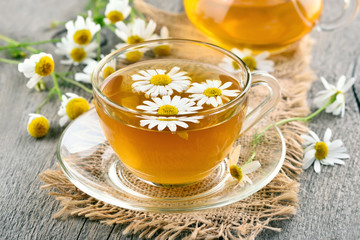
Pistachios
Pistachios are not only tasty, but they are a jackpot for sleep. They are packed with magnesium, protein, and vitamin B6, all of which have a major role in better sleep. Consuming up to one ounce of pistachios about one hour before going to bed should help you . You can eat them raw or add them to a glass of warm milk. But eating anything too high in calories at night can have the reverse effect of keeping you awake. So eat them in moderation! (Note that MOST nuts have a good amount of melatonin, but pistachios and almonds are among the highest.)
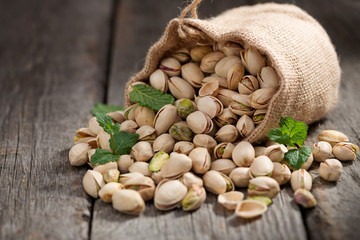
Kiwi
Kiwis contain serotonin, a brain chemical that helps regulate your sleep cycle. Many people actually take serotonin supplements to help with sleep, but I’m a fan of finding a natural, tasty whole food that serves the same purpose. Not only do kiwis contain serotonin, but they also may boost your sleep abilities due to their levels of vitamin C and carotenoids which reduce inflammation. They are not always easy to find, but grab a few the next time you see them at your market.
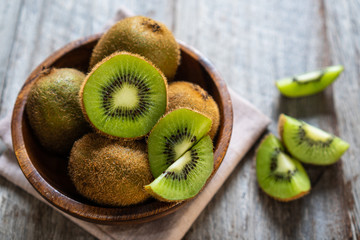
Tart cherry juice
Tart cherry juice contains high levels of melatonin that regulates your internal clock and sends signals for your body to get ready to sleep. A study conducted by Louisiana State University found that insomniacs who drank tart cherry juice increased their sleep time by 90 minutes! When I saw this tidbit of info when doing my research, I decided to shift my tart cherry juice from my morning shake to an evening snack. And it doesn’t have to be juice. Eating cherries regularly can help regulate your sleep cycle.
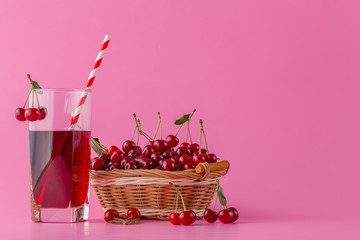
Bananas
This fruit is a powerhouse of magnesium and potassium, which serve as natural sleep aids for your body. If you are feeling wide awake late into the night, try a banana to get yourself to sleep. You can even whip yourself up a thick banana shake with almond milk before you go to bed. Bananas are high-glycemic fruits, so try adding in some protein or good fat with that shake so sugar levels don’t skyrocket into the night. Some of my favorites are coconut oil or almond butter, but you get to pick! I also like the simple approach: I often just take a spoonful of almond butter and spread it on half of a banana for an after dinner snack. So it serves as both a late dessert AND a sleep aid!
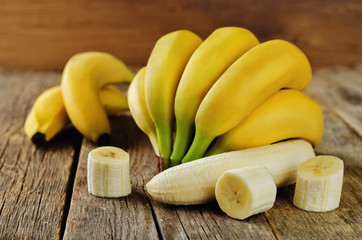
Walnuts
Walnuts contain tryptophan, which helps produce melatonin and serotonin in the body and improve the quality of our sleep by regulating the sleep cycles. The University of Texas even found that walnuts contain their own source of melatonin, which may help you fall asleep faster.
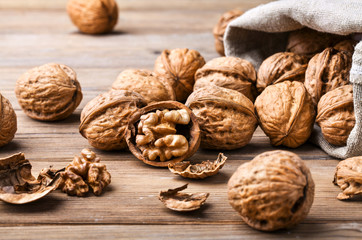
Pumpkin seeds
Try adding a handful of pumpkin seeds before bedtime. They provide a natural source of tryptophan, which is an amino acid that promotes sleep. And they are a good source of magnesium, which supports deep, restorative sleep by maintaining healthy levels of GABA (a neurotransmitter that promotes sleep). Magnesium deficiencies are associated with heightened stress and anxiety, which of course also leads to less sleep (and migraines), so these pumpkin seeds have many benefits.
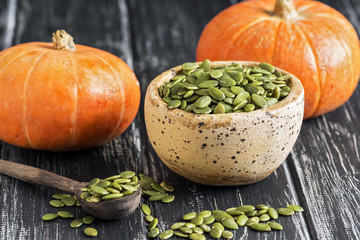
If you’ve been searching for the magical solution to get more sleep, try to avoid the over-the-counter sleep aid and add these foods to your bedtime routine instead to get your body on the right path to sound sleep!
Be sure to join my private (free) "Stop Migraines Now" Facebook group where I like to share tips like this that make life a little more enjoyable (and more productive!) Or you can reach out to me and schedule a 15 minute call to see if you are a good fit to join my case study group on how to make migraines a things of the past. Gwyn's calendar
Lets Keep in Touch!
Sign up to receive news of upcoming workshops, behind the scenes announcements, or when the next blog is released.
Don't worry. We hate SPAM. We will never sell or share your information, for any reason.

